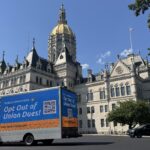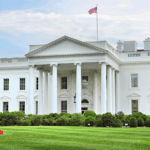While the lockdowns and rights-destroying regulations imposed in response to COVID-19 are apparently doing little to curb the spread of the virus, they’ve proved devastatingly effective when you understand the true motivations of the politicians, bureaucrats and union string-pullers charged with their enforcement — endowing them with powers they could never have attained through normal democratic means.
A textbook example of governments exploiting the current “emergency” to erode individual rights happened in Shasta County, whose residents were locked out of public meetings at the county board of supervisors — meetings that are supposed to be open to the public.
California law emphatically states that “(T)he people do not yield their sovereignty to the agencies which serve them” — a principle enshrined in the preamble to the Ralph M. Brown Act, a California law that secures the rights of everyday people to attend meetings of their state agencies.
That’s why when the Shasta County Board of Supervisors deemed that COVID-19 would close its meetings to the public “until further notice,” the people declined to yield their sovereignty and fought back.
Fortunately, they had the law behind them. The Brown Act expressly states that open meetings are foundational to each citizen’s responsibility to “retain control over the instruments they have created.”
And the Freedom Foundation’s clients in Shasta County turned that principle into action.
The whole point of the Brown Act is to allow free Californians to decide for themselves what’s worth knowing rather than having that information spoon-fed to them by lawmakers who often have something to hide.
The Freedom Foundation is proud to represent patriotic citizens in Shasta County, who emphatically schooled their public servants regarding who would make any decisions around what is good for them to know: themselves.
And it worked. The lockout didn’t survive past its first attempt. Throughout the remaining summer and fall, concerned citizens were allowed back in to all non-virtual meetings of the Board of Supervisors, and the Freedom Foundation will continue to watch and take further action as needed — because even COVID can’t make these people yield sovereignty to the agencies that serve them.











